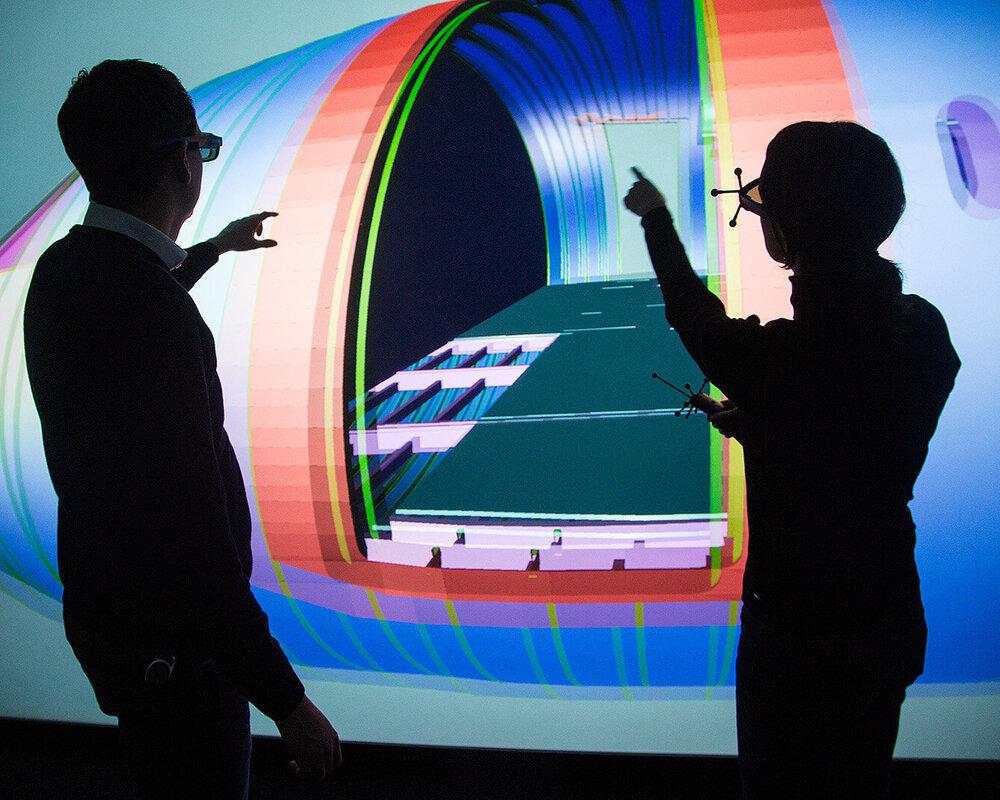
A new startup accelerator out of Hamburg, Germany is looking to develop technologies that will reduce the aviation industry’s impact on climate change. In partnership with the Hamburg Aviation cluster network and ZAL Center of Applied Aero Research, Sustainable Aero Lab will bring together relevant startups with investors, industry players and mentors from the aviation, green technology and finance industries.
The CEOs of Sustainable Aero Lab and ZAL noted during a virtual ZAL Innovation Talk on Feb. 3 that the accelerator is seeking both existing startups as well as ideas coming from universities that could potentially be used to make aviation more sustainable. Stephan Uhrenbacher, CEO of Sustainable Aero Lab, noted that he has already narrowed down a list of 100 potential startups to around 30 that the accelerator plans to approach. “We’re very strict, but we want to keep the funnel very open because we don’t know where innovation will happen at the moment. We don’t want to exclude too many things,” he said. “There are many different paths to reduce emissions in general and we will not be focused on just one.”
Roland Gerhards, ZAL CEO and lab mentor, pointed out that sustainability is not just related to emissions, but also other areas such as low noise solutions which could help improve public acceptance and change the perception of the aviation industry.
One segment within aviation the accelerator may look to for sustainability technology is MRO. “We are working closely with MRO companies. Lufthansa Technik is based here in Hamburg, so we have a very close link with them already, and I think that [there are] a lot of applications we see in there,” said Gerhards, noting that focus areas could include maintaining aircraft in a cleaner way and reusing or repairing components instead of building new ones. Gerhards also noted technologies such as 3D printing, artificial intelligence or robots as areas with promise, however, he adds that Sustainable Aero Lab will focus heavily on more practical technologies that may not appear as glamorous on the surface.
“We see a lot of startups creating these so-called ‘technology bricks’ which are needed by the supply chain and by the bigger companies so they can move along the technology process there into greener aviation,” said Gerhards. “It might be a small startup creating a new hydrogen tank solution, a new process of welding or building tanks, or measuring the liquid level of hydrogen.” He adds that the industry will need hundreds of these small technology bricks to create green aviation and that there are opportunities for startups to move into the supply chain and to work with bigger companies.
Uhrenbacher pointed out that it currently seems to be easier for “moonshot” startups—such as urban air mobility companies— to get funding compared to startups focused on more nuts and bolts technology. “People love renderings and people love ambitious projects where we all go back to the Jetsons,” said Uhrenbacher. “Part of what we have to achieve going forward with Sustainable Aero Lab is actually to really point out the development paths of these bricks as well. It feels to me that bricks are more needed at the moment than the moonshots.”
The accelerator is currently seeking participants for its first cohort of startups and Uhrenbacher noted that the efforts are not restricted to startups in Europe. The selection process is ongoing and Sustainable Aero Lab has already secured mentors that have served at companies such as Lufthansa, Boeing, Facebook and hybrid-electric aircraft developer Ampaire. It plans to run virtual sessions with its first cohort in 2021 and expects future sessions to be held in Hamburg.




